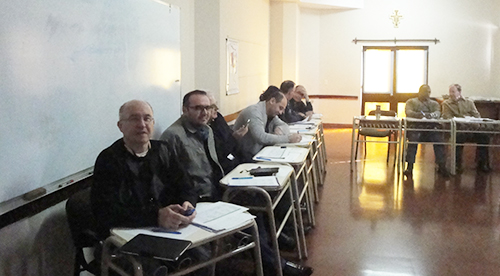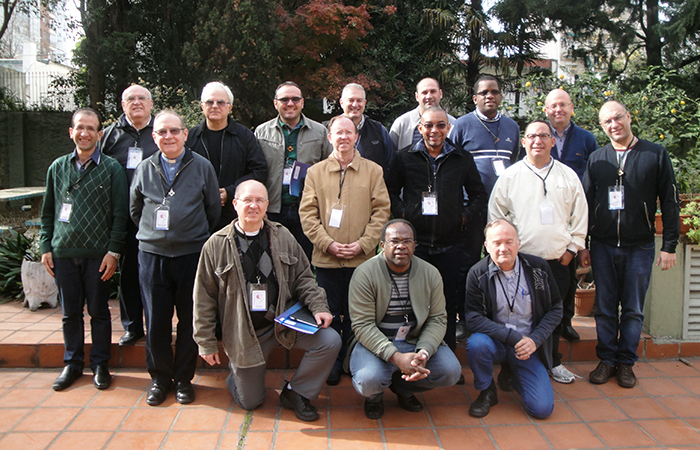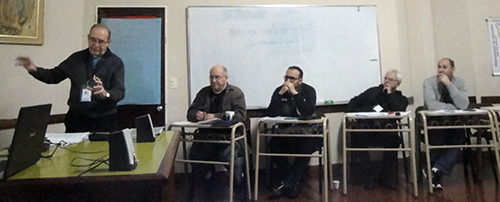“Merciful in Community with the Poor” is the title of a meeting held in Buenos Aires June 12-17, 2017. Its themes address various aspects of social commitment. We cite them as a framework of reference.
Ecology: The ecological, social and economic impact of mining industries, including large mines, water issues and their impact on life in Patagonia.
Migration: A reading of the phenomenon of migration from the writings of Fr. Dehon, and news.
Trafficking, prostitution, transsexuals: These issues are linked to the issue of migration, human trafficking and prostitution. Here is a section about ministry with transvestites and other trans-gender people in the Diocese of Neuquén.
Work, unemployment, poverty and a just economy, social concerns and solidarity: This section will highlight the work that promotes man as an element for progress, growth and social development. Unemployment and poverty in Latin America.
Dependencies: Recovery and rehabilitation programs from drugs.
Social volunteering: Generous intervention and solidarity with people, in social realities, in vulnerable situations, to achieve real social justice.
The meeting began with words of welcome from Fr. Leonardo Zampa, ARG provincial. There are 17 participants: eight from the congregation in Latin America and two confreres from Rome, the General Councilor for the geographic area, Fr. Stephen Huffstetter, and Fr. Juan José Arnaiz Ecker of the Dehon Study Center.
Attention to Ecology
Bishop Virginio Bressanelli, bishop of Neuquén, presented the theme: “The ecological, social and economic impact of extractive industries; the issue of water and its effect on life in Patagonia.”
Through a series of PowerPoints and videos, Bishop Bressanelli illustrated the ecological deterioration and the consequences for social and economic life produced by large mines and open-air mines.
He treated the subject as self-taught. Starting with local problems, from his ministry as bishop, he has come to know the topic with the help of priests and lay experts and has become concerned about the “environmental question.” He has developed a new outlook on the environmental question as described in “Ladato Si,” as proposed in Chapter IV, integral ecology, when it comes to environmental, economic, social and cultural ecology.

He said that to manage frequent social conflicts one must not to be a “mediator” but a “facilitator.” He then spoke about credibility, the value of dialogue, and a proactive attitude not only to criticize but to offer new horizons from a shepherd’s point of view. Bishop Bressanelli also emphasized the importance of the “Lima Declaration on the Environment and Climate Change.”




